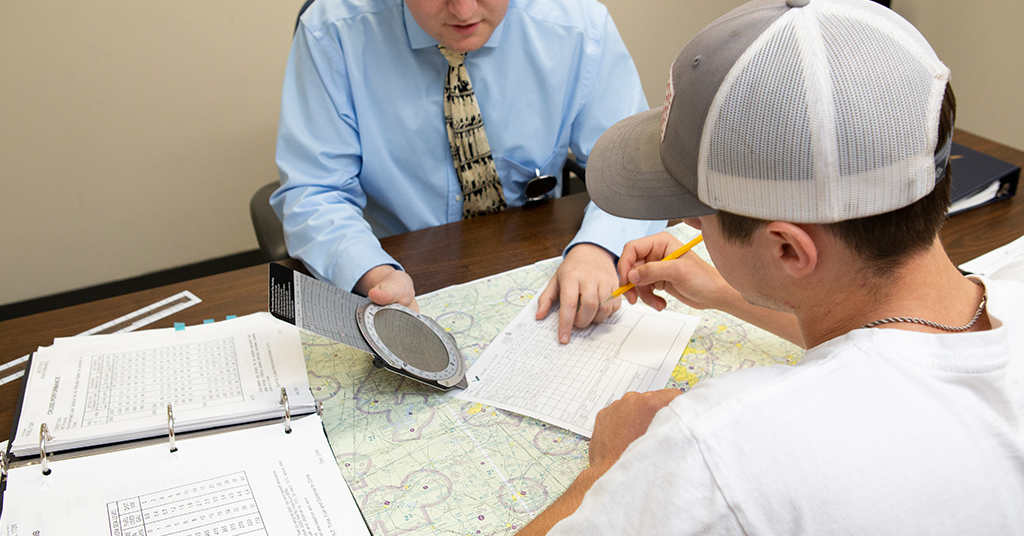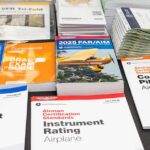By Steven Daun, National Chief Pilot
In over 30 years of being involved in the flight training industry, it amazes me that people still equate certain schools with certain airlines. Whenever I hear this, my first question to them is “how do you know which airline you are going to work for before you have even begun your flight training?” Usually, they tell me that someone else told them who to work for or what to do.
You see, aviation is a dynamic and ever-changing industry with more opportunities in various areas than perhaps any other industry. The problem is that when most people talk about becoming a pilot, they equate that to the airlines. Majority of the time this is because they simply don’t understand our industry or the vast amount of opportunities that are available.
AOPA recently published its Report on General Aviation. In that report, they show that over “65% of general aviation flights are conducted for business and public services that need transportation which is more flexible than the airlines.” This goes on to report that more than 90% of the roughly 220,000 civil aircraft registered in the U.S. are GA aircraft.
What does this mean to you, the aspiring pilot? This means that you haven’t even begun to understand what opportunities are available to you yet. So if you don’t understand the possibilities why would you want to commit to a position right now? The answer is, you shouldn’t.
As with many things in life, you need to begin the journey and look for different opportunities along the way. You will find that the airlines make up only a small and narrow path of this journey. When you begin to understand and factor in all of the uses for General Aviation aircraft, you find a tenfold increase in opportunity, fulfillment, contentment and long-term career success.
Your flight training experience should be focused on learning how to fly, how to understand aircraft systems and performance and most importantly, how to become the best all-around pilot possible. Determining which school to attend should be based more on the quality of education than cheap hourly rates. Let’s remind ourselves of the famous quote “you get what you pay for”. This is especially true in aviation. The quality of your primary flight training will determine your long-term success. Remember, what works for someone else may not work for you. Do you need a program that allows you to work at your own pace or do you want to go through your training with a group in an academy style setting?
Don’t fall for the old advertising tricks of “we guarantee interviews” or “we guarantee you a job” if you go to this school. Think about it, how can anyone guarantee you anything before you have even begin flying? Do you really want to go to a school where the instructors are there because they were guaranteed a job? I hope not.
Pick any aviation jobs board and look at the opportunities. Aviation is capable of taking you anywhere in the world that you want to go.. Let your imagination run wild and you will most likely find a pilot job to go along and fit that dream. The beautiful thing about our industry is that you can take multiple paths without long term commitments. Keeping an open mind and taking opportunities as they present themselves will enable you to experience the best of what this industry has to offer. It is important to understand that Airline Pilots only make up a small percentage of “Professional Pilots”. You owe it to yourself to see why so many more pilots take the non-airline job route than those who do choose to become airline pilots. Once you do this, you can then decide which path to take.
How do you know how to pick the right school? There are several factors to consider when picking a school. While the price plays an important role, it should be the last thing to consider and I’ll explain why. Let’s look at the individual components that should be considered when picking a school.
When visiting a school, make sure that you speak with the students. Talking to those who are receiving the education first-hand will surely let you get a feel for things. Are they happy and motivated? Speak with the instructors. Are they serious and professional, or immature and happy go lucky? Do they look the role and take it seriously or are they wearing shorts and flip flops?
Will you be learning from an instructor on the ground or will you be placed in front of a computer to learn for yourself? Many schools do this to keep the cost down. The problem is that in doing so, you won’t realize how much you are missing until it’s too late. These types of programs usually only provide you with the bare minimum amount of information to pass a checkride and nothing more.
Every school will have airplanes and unless you are a mechanic it is difficult to determine the quality of those aircraft. However, take a step back and look at the fleet. Are the airplanes similar and presentable? Do they seem well-maintained? The ideal fleet should consist of a mixture of “round dial” and “glass” avionics. If your training is conducted using both types of aircrafts, you will become a much stronger pilot.
Does the school use flight simulators to augment the training that you do in an airplane? This is essential to a successful program. A quality school will believe in teaching the information in a classroom, introducing and practicing it in a simulator and then perfecting it in the airplane.
You will also need to determine if you will have the support that you need should a problem or concern arise with your training. An easy way to determine this is to take a look at the schools’ refund policy. If you are unhappy with your training, you should not be penalized. A quality school will refund 100% of your unused tuition. No penalties or fees should be applied.
Safety should also be considered when selecting a school. Does the school have an active safety program that is proactive in its purpose? How is the training of new instructors conducted? Does the school have a continuing education and development program for its instructors? Does the school have a program to evaluate incidents that may occur to prevent them from occurring again in the future? If so, how? Does the school have a plan to identify weak areas in a student’s progression before they become an issue? If so, how does that work?
As you can see, there is much more to selecting a flight school than just cost. Additionally, there are many more factors to consider when planning out your career than you may have initially anticipated. We hope that this article encourages you to keep your options open and ask more meaningful questions about the school that you are considering.










